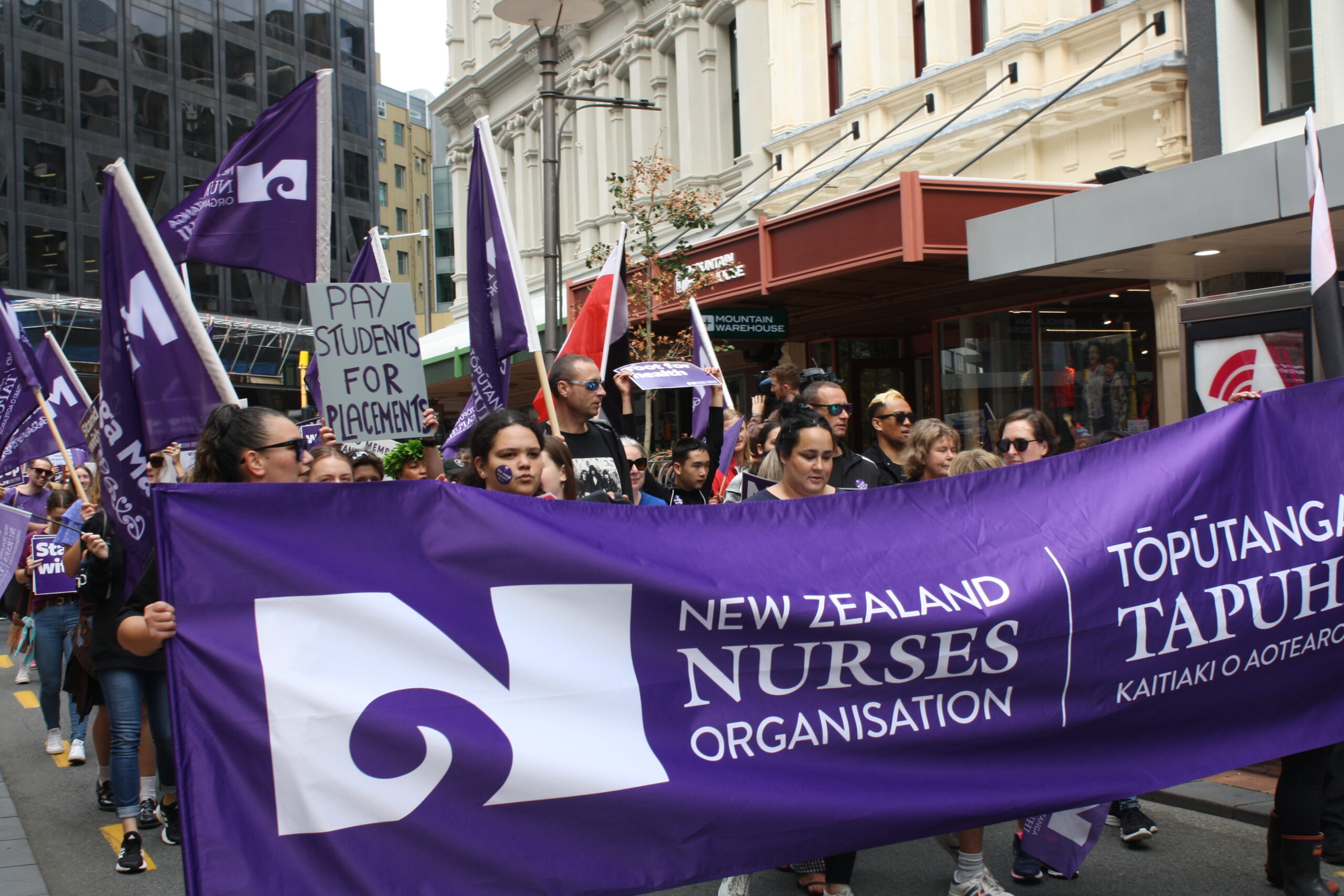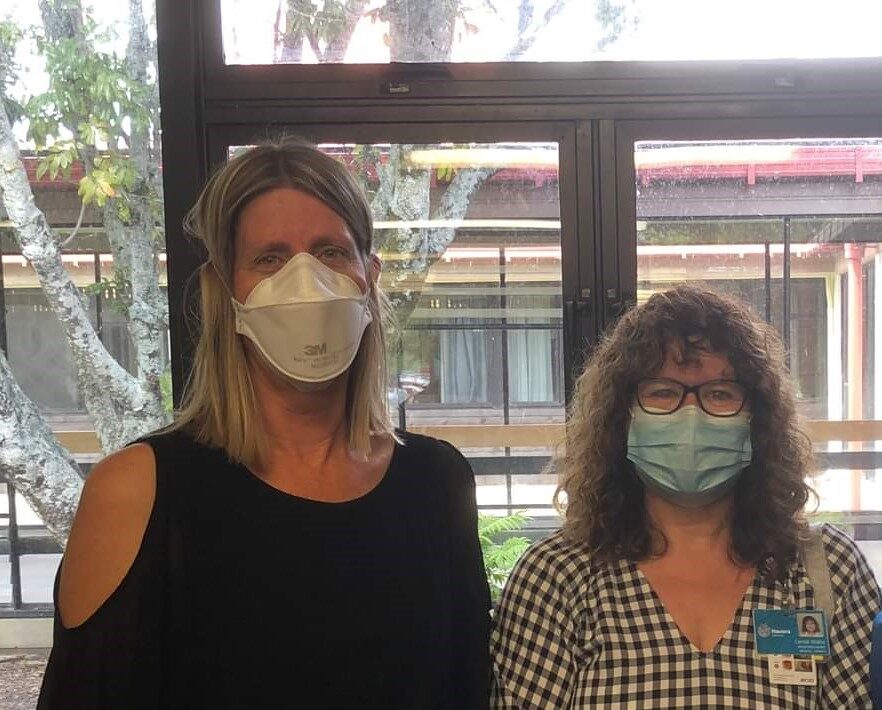About 20 nurses at Gisborne Hospital’s ward 5 plan to walk off the job on May 24, from 1.30 to 2.30pm.
NZNO delegate Christine Warrander said there had been “no let up” this year with increased patient acuity amid ongoing loss of staff at the acute medical ward which also was a COVID ward. She regularly worked anything from six to 10 hours over her fulltime role.
‘When we issued the PIN back in December, things were bad. But things are way, way worse now.’
“It’s not unusual to have a couple of horrible shifts and you can deal with that. But this is just shift after shift after shift – there’s no let up. We’re coming in exhausted, leaving absolutely exhausted,” Warrander told Kaitiaki Nursing New Zealand. “You’re just thankful you’ve got through the shift without something critical happening — and that’s not through management, that’s just pure luck.”
The acute medical ward dealt with renal, cardiac and respiratory patients and was also a COVID ward, which added to pressures, said Warrander, who has worked at Gisborne Hospital for 10 years.
Nursing staff, including health and safety representative (HSR) Carole Wallis, issued a provisional improvement notice (PIN) in December, recommending several actions including closing off five of the medical ward’s 25 beds to allow safer staffing.
A PIN is a legal notice obliging employers to respond within eight days or risk the intervention of workplace health and safety regulator WorkSafe.
While it had started targeted recruitment, the hospital has so far refused to drop bed numbers, citing patient safety, Warrander said. “But we are not keeping patients safe.”.
‘It’s our registrations on the line, and it’s patients’ lives that are on the line.’
Staff did not feel they were being listened to and had been pushed to the brink. “It’s getting worse and worse with more nurses saying ‘I’ve had enough, I’m getting out of here, I’m not doing it anymore.”
This loss of morale led to the decision to go on strike, Warrander said.
“We felt we had no option – they really need to sit up and pay attention. It’s patient welfare but it’s the staff welfare as well. Staff were getting physically and mentally burnt out,” she said.
“When we issued the PIN back in December, things were bad. But things are way, way worse now.”
Instead of five nurses on duty during the daytime shifts, there were often just two. “We’re just saying ‘how the hell are we going to cope with this’?”
Many were leaving — some the profession altogether.
‘Every staff member on the ward is going to be walking off or greeting those who are walking off – everyone is in agreement we need to do this strike.’
“We need them to know we’re not going to take this anymore. We’ve been rolling over too long and we’re not going to do it anymore — it’s our registrations on the line, and it’s patients’ lives that are on the line.”
Ward 5 staff had been getting plenty of support from other staff, Warrander said. “Other ward are watching us — even the doctors are in full support of us and say they’ll try and get out and support us.”
Every staff member on the ward is going to be walking off or greeting those who are walking off – everyone is in agreement we need to do this strike.”
The WorkSafe review was still going, but staff could not wait any longer, Warrander said.
‘Losing morale’
“We were losing morale as WorkSafe was taking a while, there was basically no end in sight – management weren’t paying attention no matter how much we screamed at them, cried at them, did all the paperwork and said ‘we can’t keep going like this, it’s unsafe’.”
A Te Whatu Ora spokesperson said Gisborne Hospital respected its staff’s right to take industrial action, and was now focusing on getting contingency plans in place.
Reducing beds in ward 5 “does not reduce the number of patients across the organisation or their needs.” Patients would need to be accommodated elsewhere “which would shift the pressure to other parts of the hospital”.
Its efforts to recruit more nurses and health-care assistants were “challenging due to national and international shortages and progress has taken longer than we would like”.
Instead, the hospital had been trying to increase support staff, redeploy staff from other areas and recruit locum support.
Meanwhile, Gisborne Hospital was working with NZNO to ensure safe services could be provided during the one-hour strike and with WorkSafe to address the concerns raised by ward 5 staff.
A WorkSafe spokesperson said that they expected to complete their review within the next month.

Remember to sign and share our petition calling for more nurses and better pay this election year: weneednurses.nz.





